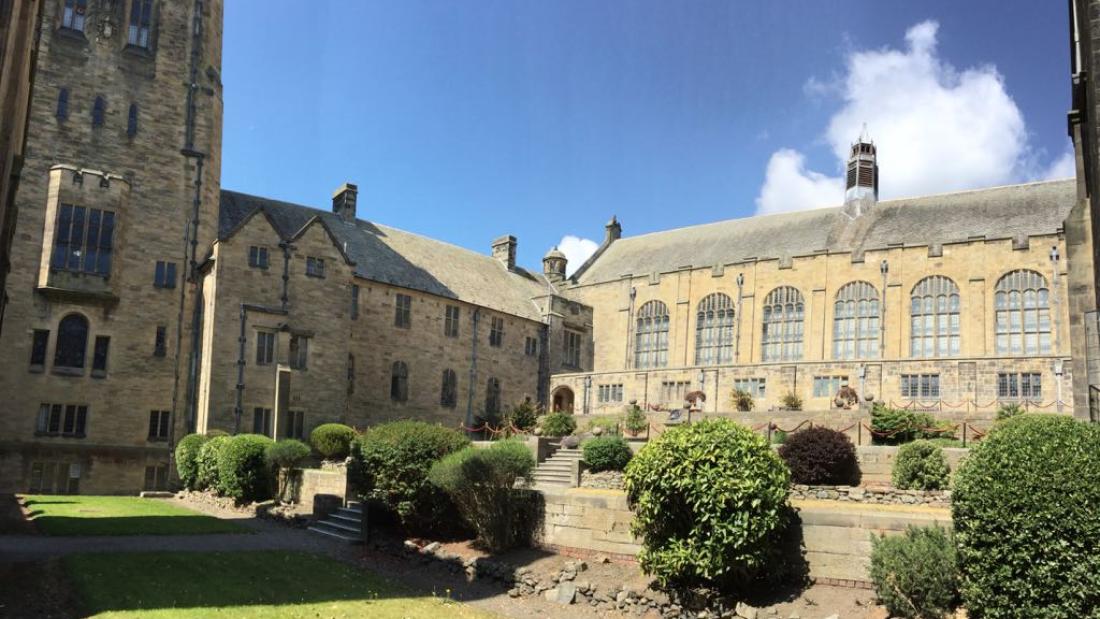This MSc programme has two parts.
Part 1 (120 credits): runs from September to May and consists of four taught modules a Field Visit and a Research Methods module component. They must be completed successfully before proceeding to Part 2.
Part 2 (60 credits): is the dissertation phase and runs from end of May to September. This is a supervised project phase which gives students further opportunity for specialisation in their chosen field. Dissertation topics are related to the interests and needs of the individual and must show evidence of wide reading and understanding as well as critical analysis or appropriate use of advanced techniques. The quality of the dissertation is taken into account in the award of the Masters degree. Bangor University regulations prescribe a maximum word limit of 20 000 words for Masters Dissertations. A length of 12 000 to 15 000 words is suggested for Masters programmes in our School.
Summary of modules taken in Part 1:
All students undertake 6 modules of 20 credits each which are described below.
Conservation Science considers questions such as ‘in a post-wild world what should be the focus of conservation attention?’ ‘What are the relative roles of ecology economics and social science in conservation?’ ‘What are the advantage and disadvantages of the introduction of market-like mechanisms into conservation policy?’ We look closely at the current and emerging drivers of biodiversity loss world-wide while carefully analysing the range of responses.
Insect Pollinators and Plants is at the interface between agriculture and conservation this module introduces students to plant ecology and insect pollinators. Students will gain unique understanding of the ecological interactions between plants and insect pollinators including honey-bees to implement more sensitive conservation management. The module explores the current conservation status of insect pollinators and their corresponding plant groups; how populations are monitored and how interventions in the broader landscape can contribute to improving their conservation status. Module components relate specifically to ecosystem pollination services apiculture and habitat restoration and or maintenance. The module has a strong practical skills focus which includes beekeeping and contemporary challenges to apiculture; plant and insect sampling and habitat surveying. Consequently there is a strong emphasis on “learning by doing.
Agriculture and the Environment reviews the impact of agricultural systems and practices on the environment and the scientific principles involved. It includes examples from a range of geographical areas. It is now recognised that many of the farming practices adopted in the 1980’s and early 1990’s aimed at maximising production and profit have had adverse effects on the environment. These include water and air pollution soil degradation loss of certain habitats and decreased biodiversity. In the UK and Europe this has led to the introduction of regulatory instruments and codes of practice aimed at minimising these problems and the promotion of new approaches to managing farmland. However as world population continues to rise there are increased concerns about food security particularly in stressful environments such as arid zones where farmers have to cope with natural problems of low rainfall and poor soils. Although new technologies including the use of GM crops have potential to resolve some of these issues concerns have been expressed about the impact of the release of these new genetically-engineered crops into the environment.
Management Planning for Conservation provides students with an understanding of the Conservation Management System approach to management planning. This involves describing a major habitat feature at a high level of definition; the preparation of a conservation objective (with performance indicators) for the habitat; identification and consideration of the implications of all factors and thus the main management activities; preparation of a conceptual model of the planning process for a case study site and creating maps using spatial data within a desktop GIS.
Research Methods Module: this prepares students for the dissertation stage of their MSc course. The module provides students with an introduction to principles of hypothesis generation sampling study design spatial methods social research methods quantitative & qualitative analysis and presentation of research findings. Practicals and field visits illustrate examples of these principles. Course assessment is aligned to the research process from the proposal stage through study write up to presentation of results. The module is in two phases. The taught content phase is until the period following Christmas. This is followed by a project planning phase for dissertation title choice and plan preparation.
Field Visit Module: this is an annual programme of scientific visits related to Conservation and Land Management. The main purpose of the trip will be to appreciate the range of activities different conservation organisations are undertaking to understand their different management objectives and constraints. Previous field trips have visited farms forests and reserves run by Scottish Wildlife Trust National Trust RSPB local authorities community groups and private individuals.
Modules for the current academic year
Module listings are for guide purposes only and are subject to change. Find out what our students are currently studying on the Conservation and Land Management Modules page.
Course content is for guidance purposes only and may be subject to change.
Apply Now
Find out how to apply
Postgraduate Tuition Fees
View our full tuition fees information
Register your interest in PG study
Register now
Show less 